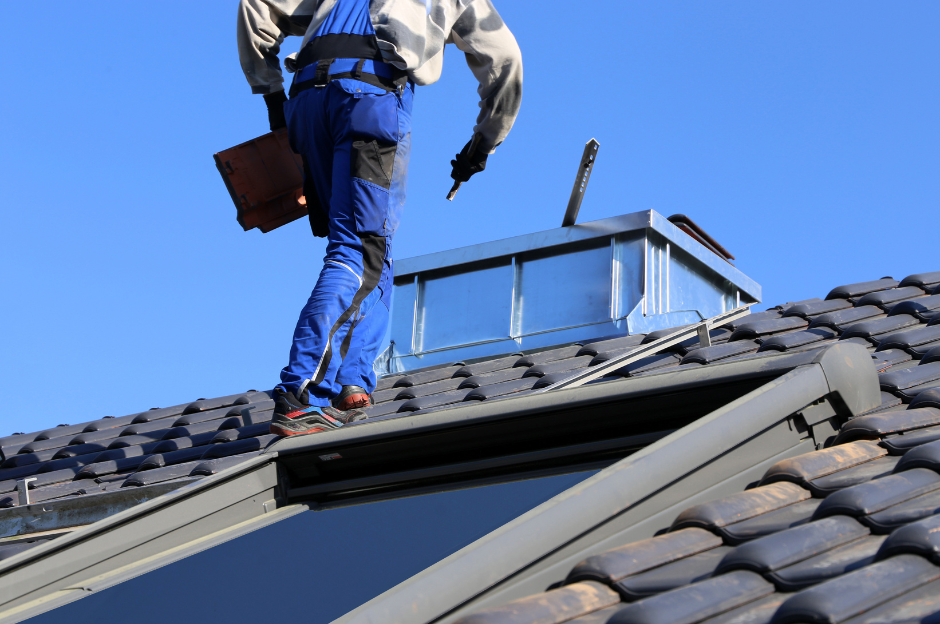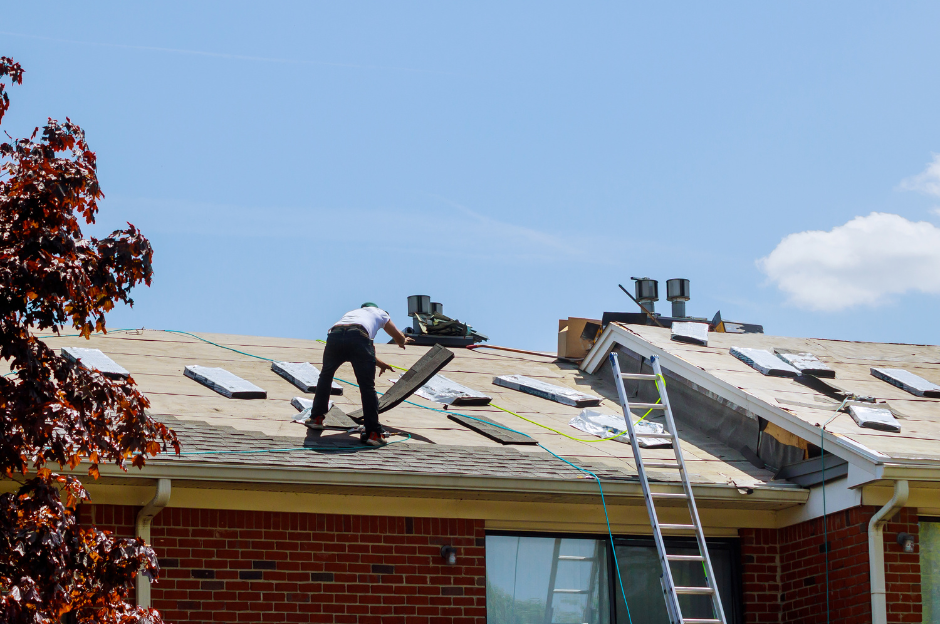Understanding Roof Warranties: What You Need to Know Before Installation
March 15, 2024

Installing a new roof is a significant investment in your home's infrastructure and longevity. When undertaking such a project, it's crucial to understand the warranties associated with your roofing materials and installation. Roof warranties provide peace of mind and financial protection against potential defects or issues that may arise after installation. In this blog post, we'll delve into the essential aspects of roof warranties, including the types of warranties available, what they cover, and what homeowners need to know before committing to a roofing installation project.
Types of Roof Warranties:
Manufacturer's Warranty:
The manufacturer's warranty covers defects in the roofing materials themselves. It typically guarantees that the materials will perform as expected for a specified period, such as 20, 30, or even 50 years, depending on the product and manufacturer. Manufacturer warranties vary in coverage and may include provisions for material defects, premature deterioration, or color fading.
Workmanship Warranty:
A workmanship warranty, also known as an installation warranty, covers the quality of the roofing installation performed by the contractor. It ensures that the roofing system is installed correctly and according to industry standards. Workmanship warranties typically range from one to ten years and protect against installation errors, such as leaks, improper flashing, or inadequate ventilation.
Extended Warranty:
Some roofing manufacturers offer extended warranties that provide additional coverage beyond the standard warranty period. Extended warranties may include enhanced protection against specific issues or offer longer coverage terms for both materials and workmanship. Homeowners can purchase extended warranties for an additional fee at the time of installation.
What Roof Warranties Cover:
Material Defects:
Manufacturer warranties typically cover defects in roofing materials, such as shingle granule loss, cracking, blistering, or delamination. If the materials fail to perform as expected due to manufacturing defects, the manufacturer will replace or repair the affected components at no cost to the homeowner.
Workmanship Errors:
Workmanship warranties protect against installation errors or defects resulting from poor craftsmanship. Common issues covered under workmanship warranties include leaks, improper flashing, inadequate ventilation, and installation mistakes. If problems arise due to installation errors, the contractor is responsible for rectifying the issues within the warranty period.
Weather Damage:
Some roofing warranties may include coverage for damage caused by severe weather conditions, such as wind, hail, or storms. However, the extent of weather-related coverage varies depending on the warranty terms and may be subject to certain limitations or exclusions. Homeowners should review the warranty documents carefully to understand what weather-related events are covered.
Transferability:
Many roofing warranties are transferable to subsequent homeowners if the property is sold during the warranty period. Transferable warranties can enhance the resale value of the home and provide added assurance to potential buyers. However, transferring the warranty may require registration or notification to the manufacturer or warranty provider.
What to Consider Before Installation:
Research Warranty Options:
Before selecting roofing materials and hiring a contractor, research the warranty options available for different products and manufacturers. Compare the terms, coverage, and reputation of various warranties to ensure you choose the best option for your needs.
Verify Contractor Credentials:
Choose a reputable roofing contractor with a proven track record of quality workmanship and customer satisfaction. Verify that the contractor is licensed, insured, and certified by the manufacturer to install the roofing materials. A reliable contractor will stand behind their work and provide a comprehensive warranty for both materials and installation.
Review Warranty Documents:
Carefully review the warranty documents provided by the manufacturer and contractor before installation begins. Pay attention to the terms, limitations, exclusions, and duration of coverage outlined in the warranty agreements. If you have any questions or concerns about the warranties, don't hesitate to seek clarification from the manufacturer or contractor.
Understand Maintenance Requirements:
Some roofing warranties may require homeowners to adhere to specific maintenance guidelines to maintain coverage. This may include regular inspections, cleaning, and repairs as needed. Familiarize yourself with the maintenance requirements outlined in the warranty documents and ensure that you can fulfill them to preserve your warranty coverage.
Keep Records and Documentation:
Keep detailed records and documentation related to your roofing installation, including contracts, invoices, warranty documents, and inspection reports. Maintain records of any maintenance or repairs performed on the roof to demonstrate compliance with warranty requirements. Having organized documentation will facilitate the warranty claims process if issues arise in the future.
Conclusion:
Understanding roof warranties is essential for homeowners embarking on a roofing installation project. By familiarizing themselves with the types of warranties available, what they cover, and what to consider before installation, homeowners can make informed decisions and protect their investment in their home's roofing system. Whether it's selecting quality materials, hiring a reputable contractor, or reviewing warranty documents thoroughly, taking proactive steps can help homeowners ensure that their roof is covered against defects, installation errors, and weather-related damage for years to come.
Henry Brothers Blog

Multi-family buildings pose unique challenges for roofing—requiring durable, efficient, and cost-effective solutions that serve multiple households simultaneously. Selecting the right system and partner can significantly impact long-term maintenance and energy bills. Common Roofing Challenges in Multi-Family Properties Large surface areas Multiple penetrations (vents, HVAC units) Noise and disruption during installation High foot traffic for maintenance Energy efficiency Efficient Roofing Materials TPO (Thermoplastic Polyolefin): Lightweight, reflective, and energy-efficient. Ideal for flat or low-slope roofs. Modified Bitumen: Offers durability and weather resistance. Works well for larger structures. Metal Roofing: Long-lasting and low-maintenance. Higher upfront costs but excellent ROI. Asphalt Shingles: Budget-friendly and easy to repair. Better for pitched multi-family homes. Affordability Strategies Bulk Purchasing Discounts: Roofers often offer lower rates for large-scale projects. Energy Rebates and Tax Credits: Cool roofing materials may qualify for incentives. Roof Coatings: Extend lifespan and defer full replacements. Preventive Maintenance Plans: Regular inspections reduce major repair costs. Partnering with the Right Contractor Choose a roofing contractor experienced in multi-family dwellings. Look for: References from similar projects Warranty offerings Insurance and licensing Clear timelines and communication protocols

Your roof is one of the most defining features of your home’s architecture. A well-designed roof complements the style, era, and character of your house, enhancing both curb appeal and value. Whether you own a modern home, a Victorian masterpiece, or a Mediterranean villa, choosing the right roofing materials and design is essential. This article explores custom roofing solutions for different architectural styles, ensuring your roof is both aesthetic and functional. 1. Why Custom Roofing Matters A one-size-fits-all approach doesn’t work for roofing. Here's why customization is key: 🏡 Preserves Architectural Integrity The roof should match the home's era and design. A poorly chosen roof can clash with the architecture and reduce property value. 💰 Boosts Home Value & Curb Appeal A well-matched roof enhances visual appeal, making your home stand out. Homebuyers prefer houses with roofs that fit the overall design. 🌦 Enhances Durability & Efficiency Custom roofing accounts for climate, slope, and insulation. Choosing the right materials ensures longer roof life and energy efficiency. 2. Best Roofing Materials for Different Architectural Styles 🏗 Modern & Contemporary Homes Modern architecture focuses on clean lines, minimalism, and energy efficiency. Best Roofing Options: ✅ Flat Roofs – Achieve a sleek, contemporary look. ✅ Metal Roofing – Durable and complements modern aesthetics. ✅ Green Roofs – Eco-friendly and visually striking. ✅ Solar Panels – Integrate renewable energy solutions. 🏰 Victorian & Gothic Revival Homes These homes have steep-pitched roofs, turrets, and elaborate detailing. Best Roofing Options: ✅ Slate Tiles – Classic, long-lasting, and historically accurate. ✅ Wood Shingles – Adds charm and natural beauty. ✅ Decorative Metal Accents – Enhances ornate Victorian designs. 🏝 Mediterranean & Spanish-Style Homes Inspired by European coastal homes, these feature stucco walls and curved archways. Best Roofing Options: ✅ Clay or Terracotta Tiles – Traditional, weather-resistant, and elegant. ✅ Concrete Tiles – Durable and available in various textures and colors. ✅ Synthetic Spanish Tiles – Modern, lightweight alternatives with classic appeal. 🌲 Rustic & Cabin-Style Homes These homes emphasize natural materials and a cozy aesthetic. Best Roofing Options: ✅ Wood Shakes – Blends seamlessly with wooded surroundings. ✅ Metal Roofing (Rustic Finish) – Durable with a weathered, natural look. ✅ Green Roofs – Enhances sustainability and insulation. 🏡 Colonial & Traditional Homes These timeless homes focus on symmetry and classic proportions. Best Roofing Options: ✅ Asphalt Shingles – Affordable and available in classic shades. ✅ Slate Roofing – Elegant and historically accurate. ✅ Copper or Metal Accents – Enhances historic charm. 🏛 Mid-Century Modern Homes This style features low-sloped roofs, large windows, and open spaces. Best Roofing Options: ✅ Flat or Low-Slope Roofs – Clean, minimalistic aesthetic. ✅ Rubber or Membrane Roofing – Ideal for low-pitch roofs. ✅ Green or Living Roofs – Complements eco-conscious designs. 🏰 Tudor-Style Homes Tudor homes have steeply pitched gables and decorative half-timbering. Best Roofing Options: ✅ Wood or Synthetic Shake Shingles – Traditional and authentic. ✅ Slate Roofing – Enhances historic charm and durability. ✅ Architectural Asphalt Shingles – Mimics wood or slate at a lower cost. 3. Custom Roofing Features to Consider Beyond materials, adding customized elements can elevate your roof’s design. 🔹 Roof Color & Texture Dark roofs enhance historic and formal homes. Light-colored roofs reflect heat, ideal for warm climates. Textured materials (slate, shakes) add visual depth. 🏠 Roof Shape & Pitch Steep roofs fit Gothic and Victorian styles. Flat or low-sloped roofs match modern homes. Custom pitches enhance energy efficiency and durability. 🔆 Skylights & Roof Windows Adds natural light and enhances ventilation. Works well in modern, contemporary, and rustic homes. 🌞 Solar Roofing & Smart Technology Solar shingles blend seamlessly into modern & eco-friendly homes. Smart roofing systems adjust ventilation & insulation automatically. 4. Custom Roofing: How to Get Started 1️⃣ Consult a Roofing Expert Work with an architect or contractor specializing in custom roofs. Ensure they understand historical accuracy and climate considerations. 2️⃣ Choose High-Quality Materials Invest in durability, energy efficiency, and aesthetics. Select roofing that aligns with your home’s style and longevity needs. 3️⃣ Consider Long-Term Costs & ROI Some materials have higher upfront costs but last longer and increase home value. Energy-efficient options can reduce heating and cooling expenses. 4️⃣ Verify Local Building Codes Some roofing styles require special permits. Ensure compliance with HOA guidelines and historical district regulations.


